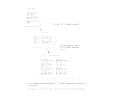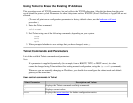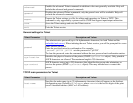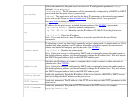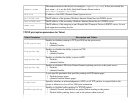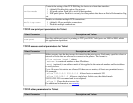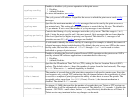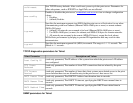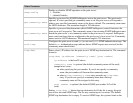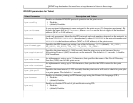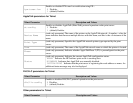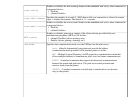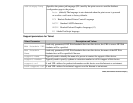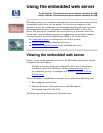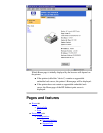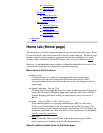
Telnet Parameter Description and Values
snmp-config
Enables or disables SNMP operation on the print server:
0 Disables.
1 (default) Enables.
get-community-name
Specifies a password for SNMP GetRequests sent to the print server. This password is
optional. If a user-specified get community name is set, the print server will respond to
either a user-specified community name or the factory-default. The community name must
be ASCII characters. The maximum length is 255 characters.
set-community-name
Specifies a password that determines which SNMP SetRequests (control functions) the
print server will respond to. The community name of an incoming SNMP SetRequest must
match the print server’s set community name for the print server to respond. SetRequests
must come from hosts that are configured in the print server’s host access list. Community
names must be ASCII characters. The maximum length is 255 characters.
auth-trap
Configures the print server to send (on) or not send (off) SNMP authentication traps. The
default is on. Authentication traps indicate that an SNMP request was received, but the
community name check failed.
trap-dest
Enters a host’s IP address into the print server’s SNMP trap destination list. The command
format is:
trap-dest ip-address [community name] [port number]
ip-address is the host IP adress.
community name is optional (the default community name will be used),
except in two cases:
when specifying the port number. If you do not specify a community
name, the port number will become the community name.
●
when a trap-community-name entry precedes any trap-dest
entry. If you do not specify a community name here, that trap
community name will be assigned to this entry.
●
port number is optional (the default SNMP port number 162 will be
used).
Setting trap-dest 0 deletes the trap destination list. If the list is empty, the print
server does not send SNMP traps. The list may contain up to five entries. The default
SNMP trap destination list is empty. To receive SNMP traps, the systems listed on the



